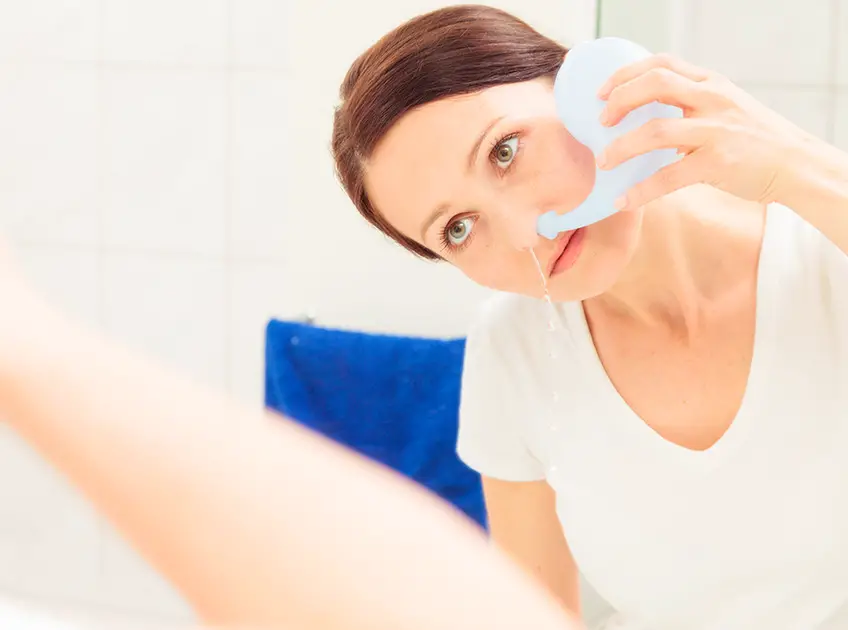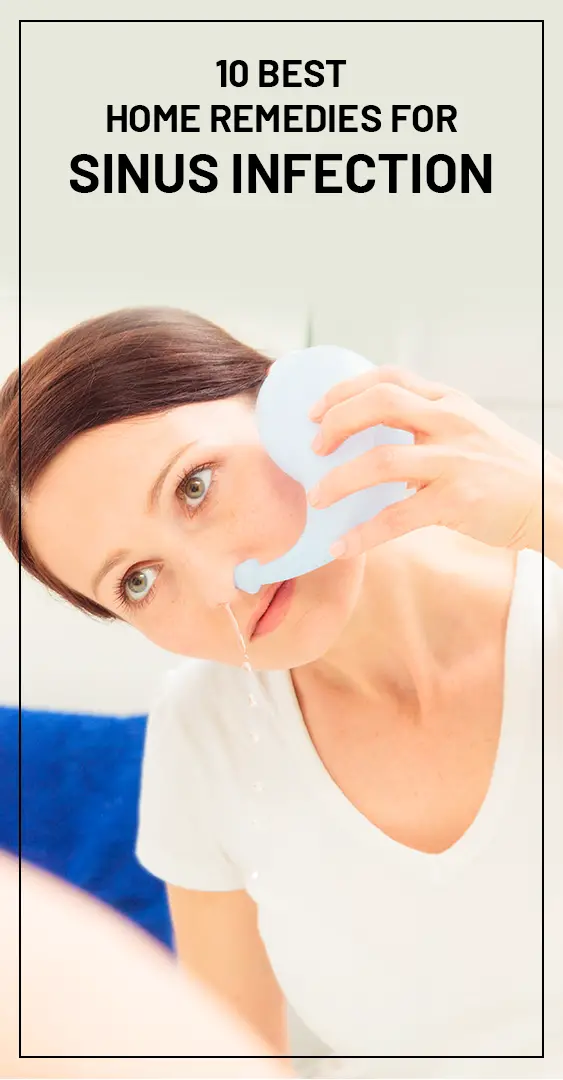
Important: This article is for informational purposes only. Please read our full disclaimer for more details.
Sinus infections are a common condition that can cause a great deal of discomfort. The symptoms can include congestion, pressure, headaches, and pain in the face and head. While there are many over-the-counter medications that can help to relieve these symptoms, there are also some home remedies that can be just as effective.
What Causes Sinus Infection?
A sinus infection, also called sinusitis, is an inflammation of the sinuses. The sinuses are hollow air spaces within the bones around the nose. They are lined with a thin layer of mucous membrane.
The most common cause of sinus infections is a viral infection, such as a cold or the flu. Bacteria can also cause sinus infections, but this is much less common. Allergies, environmental irritants, and structural problems in the nose can also lead to sinusitis.
Best Home Remedies for Sinus Infection

1. Steam Therapy
One of the most effective home remedies for sinus infections is steam therapy. The steam helps to thin the mucus and make it easier to drain from the sinuses. It also helps to alleviate congestion and pressure. You can do steam therapy by taking a hot shower, using a humidifier, or simply boiling water in a bowl and inhaling the steam while covering your head above the bowl with a blanket. Do this for 10-15 minutes and repeat this process 2-3 times per day.
[ Recommended: How to Use Oregano oil for Sinus Infection ]
2. Hydrate Yourself with Water
It is important to stay hydrated when you have a sinus infection. This will help to thin the mucus and make it easier for your body to flush it out. Drink plenty of water throughout the day and avoid sugary drinks, alcohol, and caffeine. Make sure to drink at least 2 glasses of water every 90 minutes.
3. OTC Medications
There are many over-the-counter medications that can help to relieve the symptoms of a sinus infection. These include decongestants, antihistamines, pain relievers, and mucolytics. Decongestants help to reduce congestion by constricting the blood vessels in the nose. Antihistamines work by reducing the inflammation in the sinuses. Pain relievers can help to relieve headaches and pressure. Mucolytics help to thin the mucus so that it is easier to drain from the sinuses.
Note: However make sure to consult a doctor first before you use any medications.
4. Warm Compress Helps
Applying a warm compress to the face can help to reduce pain and pressure. Take a clean face cloth and soak it in a bowl of hot water. Wring the face cloth and apply it on your nose and forehead. Do this for 5-10 minutes at a time, 2-3 times per day.
5. Get Plenty of Rest
It is important to get plenty of rest when you have a sinus infection. This will help your body to heal and recover. Make sure to get good rest to help your body fight the sinus.
[ Recommended: How to Use Apple Cider Vinegar for Sinus Infection ]
6. Try Nasal Sprays
There are a number of nasal sprays that can help to reduce congestion and inflammation. These include saline sprays, corticosteroid sprays, and antihistamine sprays. Saline sprays work by thinning the mucus and flushing out the sinuses. Corticosteroid sprays help to reduce inflammation. Antihistamine sprays work by reducing the histamine response.
Note: However make sure to consult a doctor first before you use any medications.
7. Nasal Irrigation with Neti Pot

Nasal irrigation is a process of flushing out the sinuses with a saline solution. This helps to reduce congestion and inflammation. You can do nasal irrigation at home using a neti pot or a bulb syringe. Make sure to use sterile water or distilled water for this process.
Process of using neti pot:
- Mix 2 spoons of salt in boiled clean water
- Take a Neti pot and clean it well.
- Fill the neti pot with the salt water.
- Turn your head over the sink at a 45-degree angle.
- Insert the spout of the neti pot into your top nostril. Carefully squeeze the saline solution in one nostril.
- Repeat the same with the other nostril as well.
Use only clean distilled water and not tap water as they may contain any parasites or bacteria contaminants. And clean your neti pot after every use and sanitize it.
[ Recommended: Home Remedies To Get Rid Of Headache ]
8. Get Prescription from Doctor
You need to consult a Doctor to identify whether the sinus is caused by viral bacteria or is it chronic sinusitis. If it is a bacterial sinusitis, your doctor will prescribe antibiotics to clear the infection. If it is chronic sinusitis, you may need to undergo surgery to remove the blockage in the sinuses.
9. Surgery
If the sinus is non-responsive to the home remedies and medications, you may need to undergo surgery. The surgery is performed to remove the blockage in the sinuses. This helps to improve the ventilation and drainage of the mucus in sinuses.
10. Eat Anti-Bacterial Foods
There are certain foods that help to reduce the infection and promote healing. These include ginger, garlic, turmeric, chicken soup, etc. Having Ginger tea or raw honey can also contribute to reducing the inflammation.
How to Avoid Sinus Infection?
There are a Few Things you Can do to Avoid Sinus Infections:
1. Avoid Environmental Irritants: This includes smoke, dust, pollens, etc. If you are allergic to any of these, make sure to take the necessary precautions to avoid them.
2. Keep your Nasal Passages Clean: Make sure to clean your nose regularly to avoid any accumulation of mucus. You can use a saline spray for this purpose.
3. Avoid Infections: Make sure to avoid any kind of infection by washing your hands regularly and avoiding contact with people who are sick.
4. Drink Plenty of Fluids: This helps to thin the mucus and flush out the toxins from your body.
5. Improve your Immune System: Make sure to eat a healthy diet and get enough sleep to keep your immune system strong.
Make Sure to Take the Following Precautions
1. Consult a Doctor First: If you are suffering from any kind of medical condition, make sure to consult a doctor before using any home remedies.
2. Do a Patch Test: If you are using any essential oils, make sure to do a patch test before using them.
3. Check the Expiry Date: If you are using any over-the-counter medications, make sure to check the expiry date before using them.
4. Discontinue Use if you Experience any Side Effects: If you experience any kind of side effect after using any home remedy, make sure to discontinue its use immediately.
5. Keep Out of Reach of Children: If you are using any home remedies that contain toxic substances, make sure to keep them out of reach of children.
Sinus infections can be a nuisance but there are a number of things you can do to avoid them. If you do get a sinus infection, make sure to consult a doctor and follow the treatment plan. Home remedies can also be helpful in reducing the symptoms and promoting healing.
Recommended Topics:
- Best Yoga Poses for Sinus Relief
- Essential Oils For Ganglion Cyst
- 10 Essential Oils for Sinus Congestion And How To Use It
















